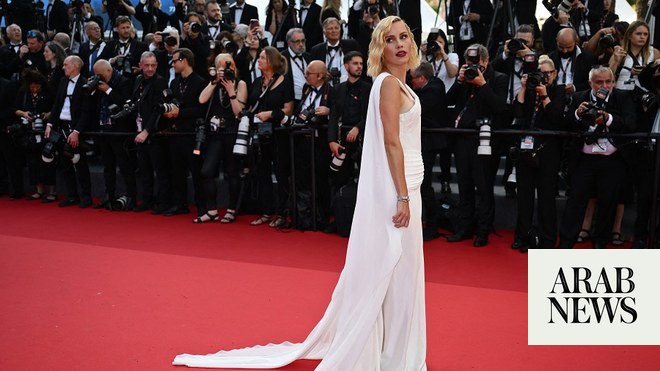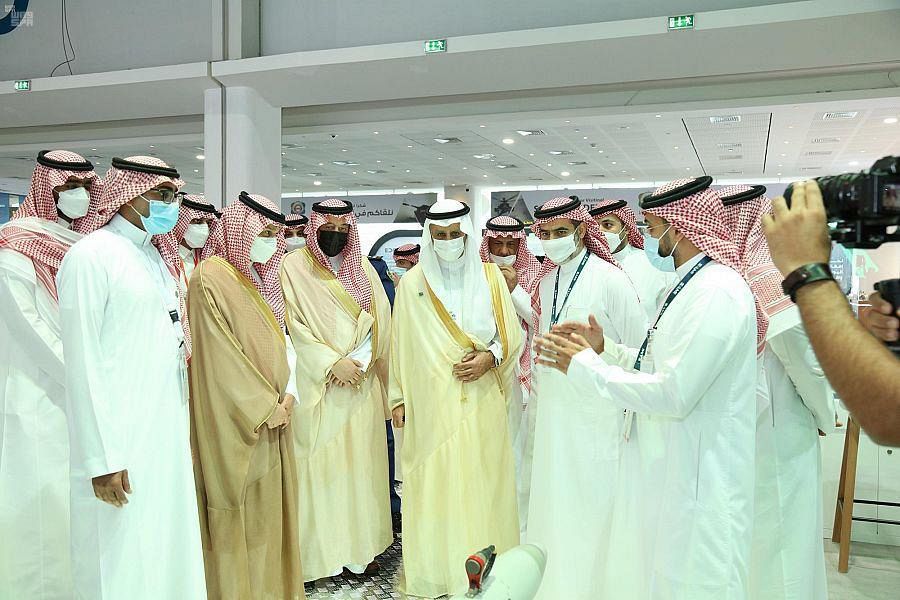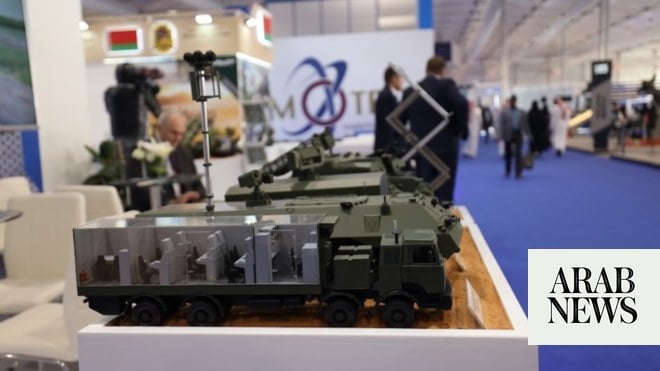
It is instructive to take a tour around IDEX, the biggest defense fair in the Middle East, in the company of a former military man. The goods on show, bewildering for a civilian journalist like me, make sense when seen through the eyes of a man who has seen it all, and done a lot of it.
My companion was at pains to point out that the annual exhibition in the UAE capital Abu Dhabi is an unusual event in the defense world. The global defense industry has become so enormous that the really big manufacturing countries — such as the US, the UK and Russia — tend to specialize in their exhibitions, with separate shows for aero, ground, marine and the rest.
IDEX is one of the few that puts them all together in one place, in a four-day extravaganza of guns, armor, missiles and boats. The other unique selling point of IDEX is that it takes place in the middle of one of the most defense-minded regions in the world.
A report published to coincide with the IDEX opening calculated that spending on arms in the Middle East jumped from $82.3 billion in 2013 to an estimated $103 billion in 2019, and is projected to rise to $110.8 billion in 2023.
Defense spending has been largely protected from cuts in government budgets since the fall in the oil price in 2014, as regional political tensions have increased. The Middle East accounts for around 20 percent of the global spend on defense imports, and American exporters account for about half that total.
That situation is not to everybody’s liking, especially in the Middle East countries themselves. While regional governments realize that they have to pay top dollar for the real state-of-the-art systems that the Americans specialize in, they no longer have to go shopping in the US for every item of equipment.
Middle Eastern countries have realized that they can manufacture a large proportion of the defense range themselves, which cuts their import bills and provides employment at home.
Frank Kane
IDEX stands out in this respect too, because you can find virtually every military product on display there. Leave one hall where you have just been looking at some ultra-sophisticated avionics kit, and you turn right into a store selling a pretty natty line in desert camouflage gear. IDEX really is a one-stop-shop for the defense industry.
Middle Eastern countries have realized that they can manufacture a large proportion of the defense range themselves, which cuts their import bills and provides employment at home. This is another way in which IDEX is pretty unique. While you will find the big beasts of defense there (Boeing, Raytheon, BAe Systems and the rest), you will also come across a large number of less familiar and more recent names — companies that have grown up in the economies of the Arabian Gulf over the past decade, or even more recently.
The Saudi area in IDEX takes up a big chunk of hall 12, one of the bigger exhibition halls, between stands from Pakistan and South Africa. Some of the Saudi names were familiar to me, others less so. Most observers of the Kingdom under the Vision 2030 reform plan will have come across the Saudi Arabian Military Industries (SAMI) company, launched in 2017 as a sustainable platform for the localization of arms and other security equipment.
But others were new to me, such as the Saudi Defense Electronics Co., which had a high profile in all kinds of aviation and other equipment; Al-Esnad, which put on an impressive display of armored vehicles and other mobile fighting units; the Advanced Electronics Co., a Riyadh based hi-tech company that is “fully committed and aligned with Vision 2030, localization, and transferring technology,” according to its promotional literature; and the Military Industries Corp., a Dammam-based organization also big in armored vehicles and offering a staggering range of fearsome-looking ammunition.
The idea, my military friend explained, is not just to make regional countries self-reliant in defense equipment, but also to become an export hub for other parts of the region. The idea is that governments in Africa and many parts of Asia do not need to buy ultra-advanced equipment because they are unlikely to get into conflicts with adversaries that are that well armed.
IDEX offers this full range of defense equipment, from the high-cost, hi-tech to the provision of fighting equipment to low-budget countries. This is one of the reasons it has thrived for more than 25 years.
Frank Kane is an award-winning business journalist based in Dubai. Twitter: @frankkanedubai
Disclaimer: Views expressed by writers in this section are their own and do not necessarily reflect Arab News" point-of-view












